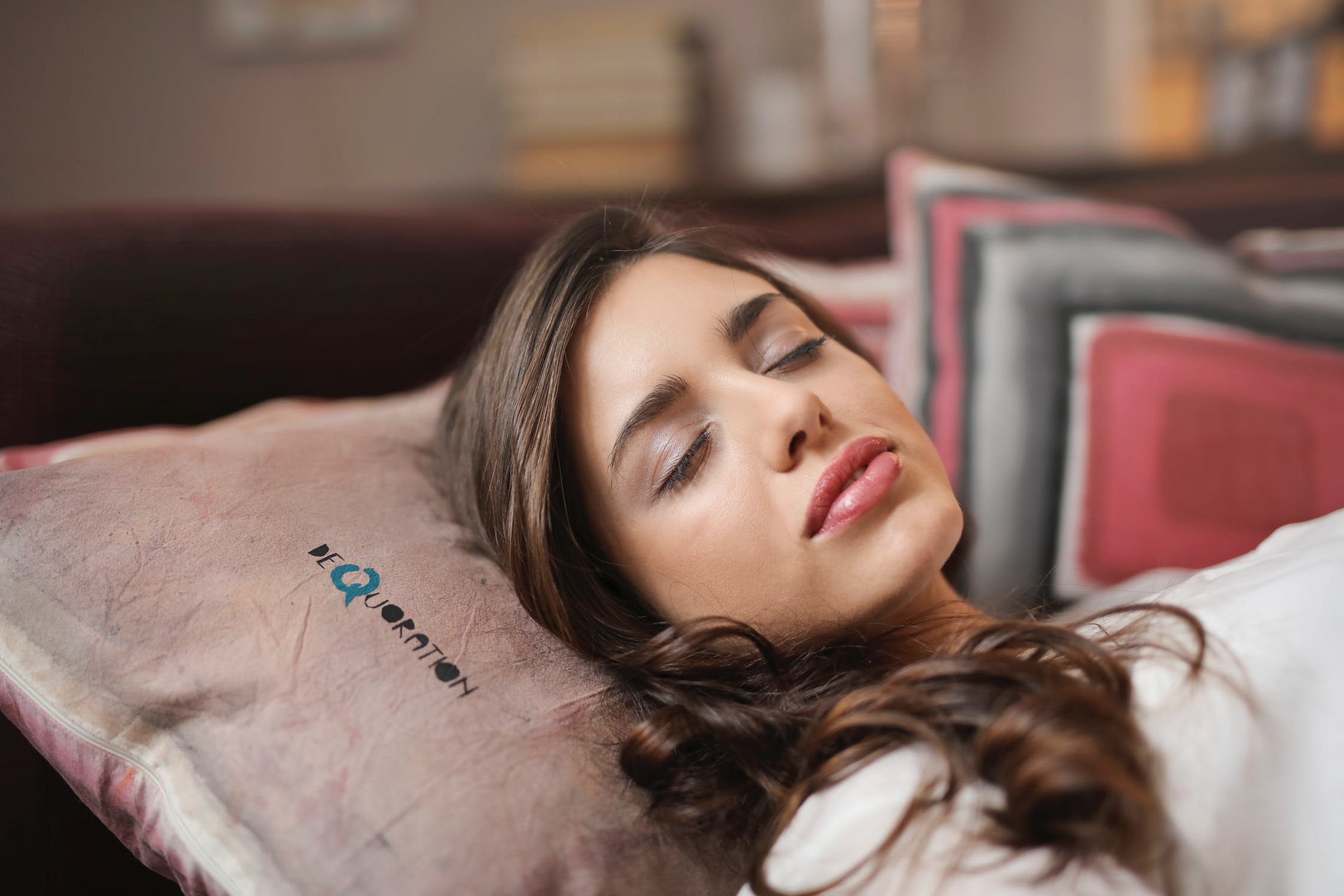“Rules are meant to be broken!” – Sure, if you are trying to live a rebellious and fast life. But when it comes to the rest and relaxation of your body, provided by the healing power of sleeping, there are several rules that require strict following.
Many of us do not even think about the importance of sleeping during the day until the moment we go to bed or wake up in the morning grumpy due to the lack of sleep. Your habits and daily routine like the choice of food, drink, or physical activity have a strong impact on whether you will have healthy sleep or you will suffer from sleepless nights that will drain your energy. For this reason, keeping a good sleep hygiene is crucial for maintaining productivity and strong physical and mental health throughout your whole life.
One of the most important things to keep in mind is the hours you spend sleeping. Doing this too little or too much can lead to an imbalance in the organism. This can cause irritability, lack of energy, blurred vision, or even more serious problems such as obesity, heart problems, depression, and anxiety. With that being said, the optimal number of sleep hours is difficult to determine because it depends on many factors such as our age, the energy that needs to be restored, the activity of the individual, and the genes. However, there are rules that can help you maintain a healthy sleep and keep you high-spirited and energetic all the time.
Table of Contents
1. Make Your Regular Bedtime
Have you ever heard of the term biological clock? It’s an internal clock that our body possesses, more specifically called circadian rhythm. This biological clock makes us feel awake throughout the day, and drowsy during the evening. In other words, our body receives signals in a form of hormones, from our brain during the day, which make us feel awake and energized.
The biological clock works similarly like our alarm clock. The more we gain a routine in getting up and going to bed at the same time every day and every night, the more our body gets used and gives us a strong sleep and pleasant mornings. As previously said, our body is awake throughout the day as a result of the signals sent by our brain. Namely, the same signals are sent as a result of the daylight that helps your brain to wake up faster.
Keeping a new sleep routine can be rather challenging considering all the obligations we have. It is, therefore, best to take baby steps. If you are accustomed to going to bed at 12 o’clock at midnight, try several days in a row to do it at least 15 minutes earlier and then slowly increase the time. In this way your body will get used to the new sleeping routine more quickly and you will feel relaxed and fresh.
2. Always Make Relaxing Routine
You don’t need to be a scientist to know that relaxation can help you have a better dream. The more tranquil your life is, the better your sleep will be. However, life is not perfect and we all face a certain amount of stress during the day. Relaxation is important for reducing heartbeat, blood pressure, brain activity, and tension in order to bring the body into a calm and loosed state. Relaxation is one of the most used methods for shifting into the sleep phase and treating insomnia. It would be best if you make your own relaxing routine that will help you remove the unnecessary thoughts from your brain.
However, if you have no idea how to create a relaxing atmosphere then you can try tryptophan. Sounds too scientific? It is just an amino acid consisted in milk and other foods. It has been scientifically proven that milk helps you relax and sleep faster. If you think that this is not a sufficient way to relax, then you can always choose a hot bath, a good book or something else that will help you get away from your worries.
3. Limit caffeine and alcohol consummation
Many people consume caffeine during the day in order to weak up faster and be more productive. And indeed, caffeine has such a power that can help you feel more energized and stimulated. On the other hand, caffeine can have a negative impact on your dream. Consumption of caffeine late in the day or before bedtime can lead to increased anxiety and sleep disorders. According to one study, caffeine can have a negative impact on the body’s biological clock as well.
According to Sleep Education, our body needs 3-5 hours to throw out the caffeine from our system. Depending on the amount you consume and the time you drink your coffee, caffeine can reduce your sleep for several hours.
Alcohol often gives false hope when it comes to sleep. Sometimes people consume it in order to make it easier to fall asleep, but it has negative effects in the second half of the night. Namely, the alcohol affects negatively in the REM phase, which if disturbed, can result in dizziness, lower concentration, and headaches throughout the day.
4. Keep Your Phone Away
It can be tempting to make just one last scroll on Instagram or Facebook and see what your friends have posted before bedtime. But when it comes to sleeping and smartphones, is smarter to keep them away from your bed. This is because of the blue light every technology like laptops, tablets, and television emit. Our brain interprets this light as a normal daylight and begins to stimulate. Blue light suppresses melanin, which should otherwise be secreted before bedtime and makes us more awake.
5. Find a Comfortable Mattress
Mattresses are used as a place for comfortable sleeping. We feel the importance of a comfortable and good mattress every morning when we get pain in the spine and neck. An inadequate mattress can contribute to feeling pain during the sleep when we turn or move.
According to Michael Decker, associate professor at the Case Western Reserve University Frances Payne Bolton School of Nursing, when we sleep on inadequate mattresses, the weight of our body reduces the movement of blood through the blood vessels and leads to a reduction in oxygen and nutrients in our skin. Then, your body pours out pain signals that make you turn to the other side. This leads to a return of the blood circulation to normal but interrupts your dream. The ideal mattress is an individual choice for each person, but what is universal is that it should allow you better sleep and rest.
6. Meditation and Mindfulness
There are many things that are out of our control, but the mind is not one of them. Our brain is a treasure trove of many unexplored areas for which we need a lot of effort and training to gain control over. Meditation is a tool that helps to improve concentration, relieve stress and improve sleep.
Mindfulness meditation, on the other hand, focuses on the breathing and increases awareness of the present without thinking about the past or the future. This type of meditation helps you to get rid of the thoughts that are constantly buzzing inside your mind. To make the mindfulness learning easier you can also use an application that offers relaxing and calming sounds of nature.
Such applications are Calm, Jinglow, or Omvana. These therapeutic tools can help you relax while meditating, increase your happiness and improve the overall sleeping.



















